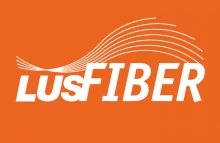
In 2014, Mozilla and the National Science Foundation (NSF) created the Gigabit Community Fund to help local communities test new gigabit technologies. This year, projects in Eugene, Oregon, and Lafayette, Louisiana, will receive awards from the fund. Each community will receive $150,000 $300,000. Organizations that want to apply for the funding with their project ideas need to submit applications by July 14, 2017.
Learn more about the application process and the award at the Gigabit Communities website.
The recent announcement described the reasons for adding these cities to the list of past winners - Chattanooga, Kansas City, and Austin:
Why Eugene and Lafayette? Mozilla Community Gigabit Fund cities are selected based on a range of criteria, including a widely deployed high-speed fiber network; a developing conversation about digital literacy, access, and innovation; a critical mass of community anchor organizations, including arts and educational organizations; an evolving entrepreneurial community; and opportunities to engage K-12 school systems. (emphasis ours)
Check out this video on Mozilla and the Gigabit Community Fund:
Update: After publishing this story, we received the official news release from the city of Eugene and the Technology Association of Oregon, which provided a little more information. Specifcally that grants usually range from $5,000 - $30,000 and that the pilot period is typically 16 weeks. You can read the news release here.







